A particular Grey's Anatomy episode has had a massive real-world effect
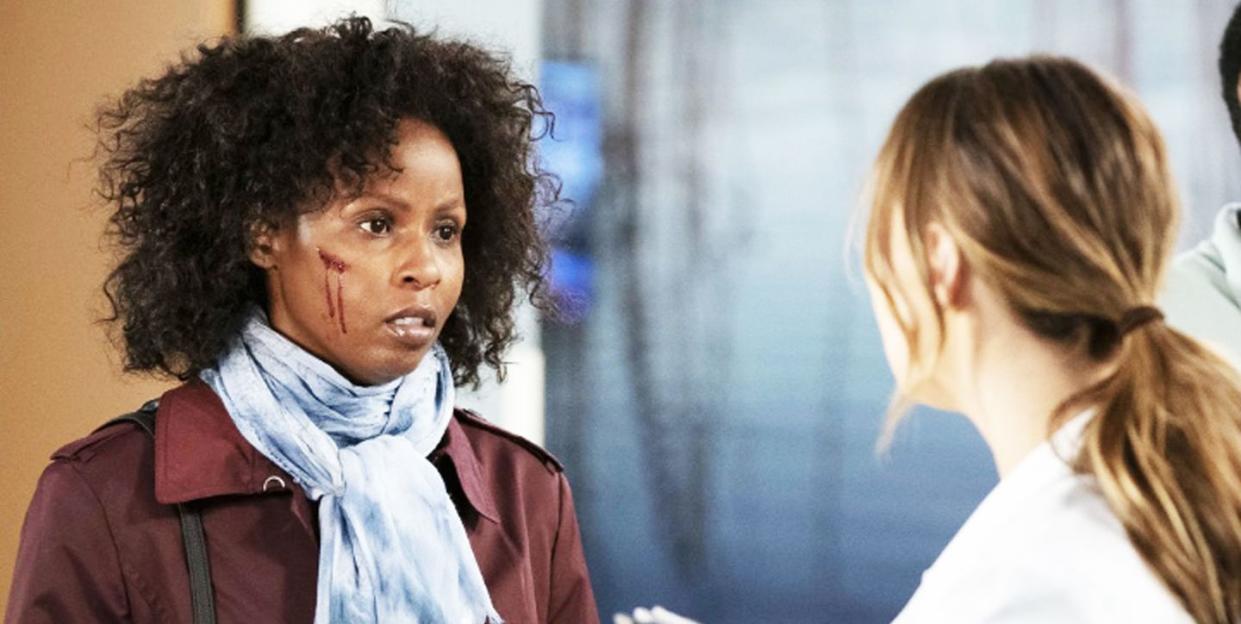
Warning: This article contains discussions of rape and sexual assault that some readers may find upsetting.
Back in March, Grey's Anatomy delivered one of the most powerful TV moments of the year.
Khalilah Joi guest-starred as a woman called Abby in season 15's 'Silent All These Years'. She had been raped after leaving a bar and arrived at Grey Sloan with visible injuries – a cut to her face and bruises – and she was also suffering from internal injuries that required urgent surgery.
Abby didn't want to report the incident to the police or tell her husband, who she had had an argument with earlier in the evening, because she was concerned about how she would be perceived. Abby had been drinking and was well aware of the victim-blaming narrative so often used against women.
She did, after much deliberation, tell her husband about her ordeal and file a police report.
It was also a highly emotional episode for Jo (Camilla Luddington), who discovered that her biological mother had been raped. Jo was the product of that sexual assault and her mother, unable to cope, had left her at a fire station. As a result, Jo had grown up in a string of foster homes and had also suffered abuse at the hands of her ex-husband.
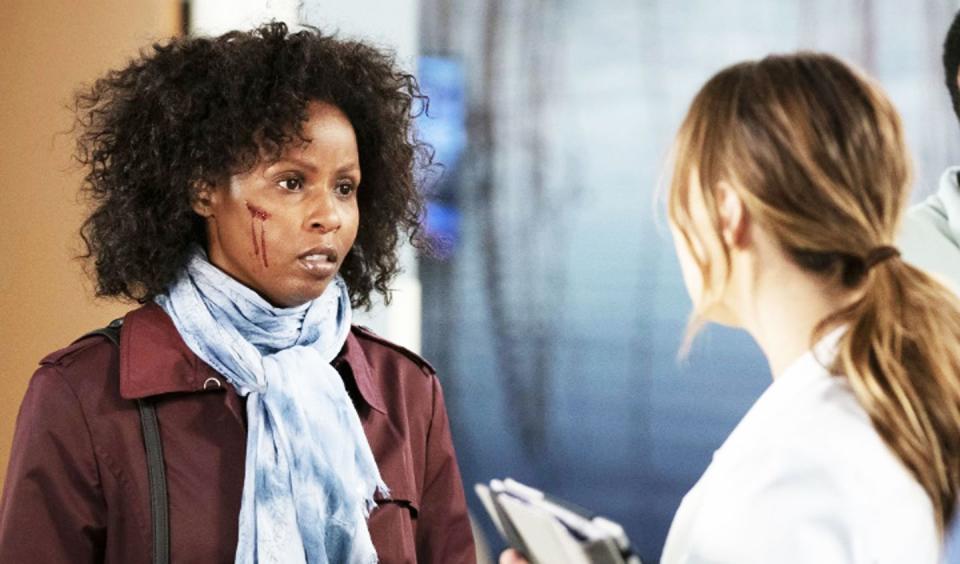
The most poignant juncture in the episode came towards the end, before Abby was taken into surgery.
She expressed her fear of going under anesthesia because she didn't want to be knocked out given what had happened to her, and she also said that she was afraid of every man she looked at, seeing her attacker in all of their faces.
From that, the wall of women was assembled, the hospital's female employees lining the the entire length of the hallway, right up to the doors of the operating theatre.
The vast majority of people present in that corridor didn't know Abby and she didn't know them, but the sisterhood prevailed and she was supported every step of the way.
You are not alone. #GreysAnatomy pic.twitter.com/QoDzqRbawr
— Greys Anatomy (@GreysABC) March 29, 2019
Episode writer Elisabeth R Finch was inspired to include the wall of women after a visit to the UCLA Medical Centre, Santa Monica Rape Treatment Centre.
"It's an internationally known organisation that every treatment centre ought to be because of the way they have designed their space," she told Entertainment Weekly. "One of the most fascinating things about this place is how every time we would go into a room, there would be a series of radio [communications] from a person who checks to see if the hallways are clear. They want to make sure no stranger, not anyone, is walking through that hallway while a survivor is passing through.
"A year later, I watched a YouTube video of someone who donated organs. Part of the hospital protocol is that whenever an organ donor is wheeled down a hallway, every single doctor in that hospital lines the hallways to honour that person. Something clicked in my head about marrying those two things."
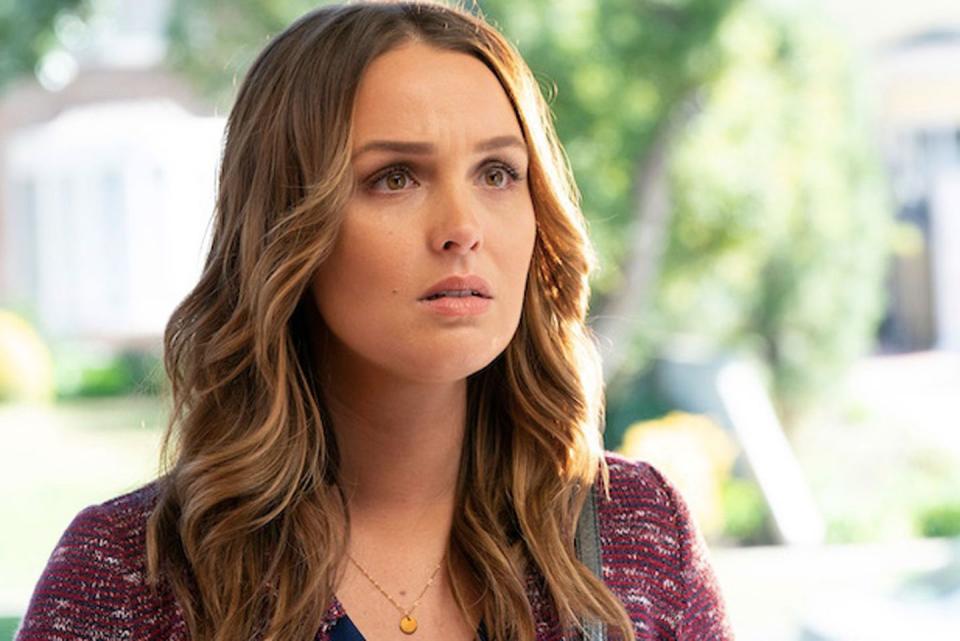
Showrunner Krista Vernoff added: "She pitched this scene to me as the 'army of awesome'... It's so rare to get that kind of representation in TV that looks at the fallout of violence and focuses on ways we can support and heal each other rather than further damage each other."
Not only was the series widely praised for its informed and sensitive handling of an experience which is, unfortunately, incredibly common, the real-world effects of that particular episode have been colossal, spurred on by an appeal from Ellen Pompeo (Meredith).
At the end, she encouraged viewers to reach out if they had been affected by sexual violence, with the contact details for the National Sexual Assault Hotline operated by the Rape, Abuse & Incest National Network (RAINN) shared on screen.
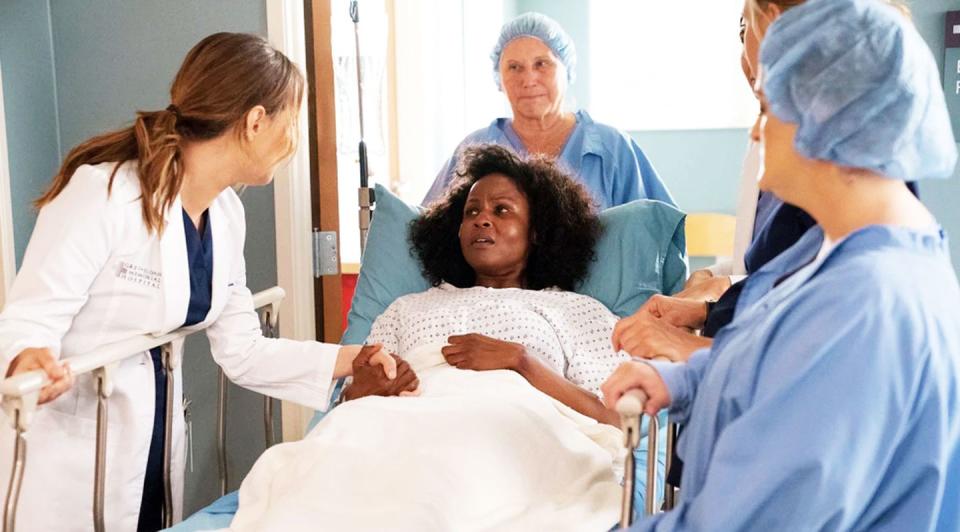
A study carried out by researchers at Oklahoma State University Centre for Health Sciences monitored certain key words on both Google and Twitter for two weeks before and after the episode was broadcast, as well as asking RAINN to share its call volumes in the 48 hours after it aired.
Trevor Torgerson, a medical student, told Reuters Health that "engagements with the @RAINN Twitter account and tweets mentioning 'sexual assault hotline' increased by 1,097% the day after the episode".
Other data include:
Tweets that mentioned 'sexual assault hotline' were 1,995% higher than usual.
Tweets that mentioned 'RAINN' were 292% higher than usual, and the number of searches for that term were 41% larger than predicted.
Search volumes for 'sexual assault and 'rape' were 9% and 8% higher respectively.
In the 48 hours after the episode aired, the number of calls to the National Sexual Assault Hotline increased by 43%.
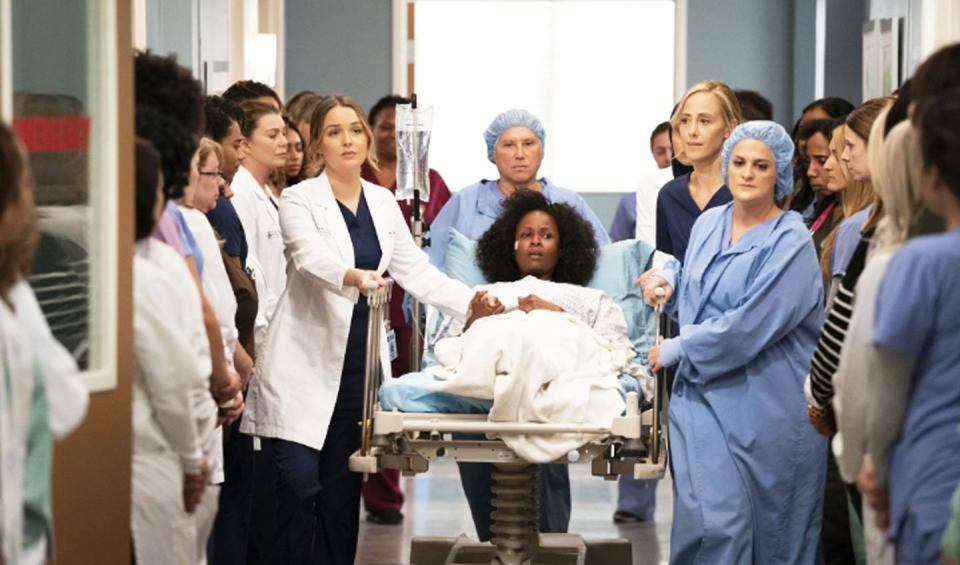
Vernoff described the episode as a "riveting hour" of TV to Vulture.
"I can't breathe," she continued. "I'm on the edge of my seat. I've seen it 155 times. I watch it, I cry every time…and it has an impact.
"I am tired of awarding shows that use dead, raped female corpses as props for the male cops to go do their job… and if I can't turn on the TV and find it, I'm going to keep making it."
Another important strand of 'Silent All These Years' was consent, with Ben (Jason Winston George) taking the time to make sure his step-son Tuck (BJ Tanner) understood what boundaries he should never cross.
"If she stops having fun, just plain stop," said Tuck. "Time out. Game over."
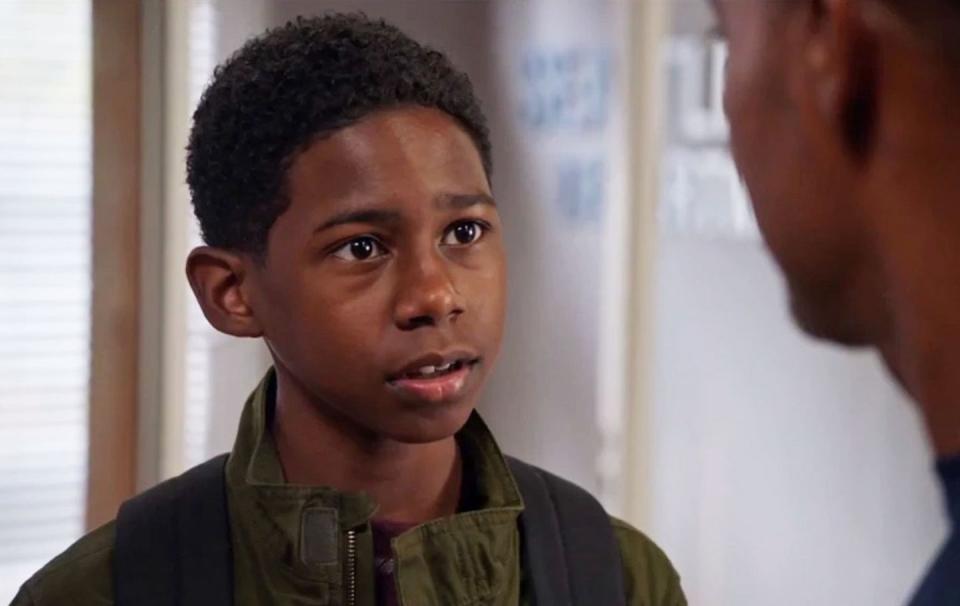
The decision to include that within the episode was motivated by sexual-assault allegations made by research psychologist Christine Blasey Ford against Supreme Court Justice Brett Kavanaugh, alleged to have taken place when the pair were in high school.
Kavanaugh has denied any wrongdoing and the Senate Judiciary Committee ruled that there "was no evidence to substantiate any of the claims".
"Our collective blood was boiling," Vernoff told Vulture. "We have to do something about consent because all of the kids in the country have now been taught that consent is irrelevant. We have an opportunity to refute the notion that consent doesn't matter."
She echoed that sentiment in an interview with Entertainment Weekly: "I went to the writers and said, 'The message that has just been sent to all young women is that consent doesn't matter. We have an opportunity here to teach men and women about consent and to talk about how lasting and impactful rape can be for generations.'
"It's the first time ever that I reached out to the staff with an actual issue as opposed to saying, 'Hey! I have a character idea.'"
Director Debbie Allen added: "Grey's Anatomy is about a lot of things. We tackle the most controversial and relevant subject matters as well as wonderful relationships and people trying to find their way. And we will continue."
Rape Crisis England and Wales works towards the elimination of all forms of sexual violence and sexual misconduct. If you’ve been affected by the issues raised in this story, you can access more information on their website or by calling the National Rape Crisis Helpline on 0808 802 9999. Rape Crisis Scotland’s helpline number is 08088 01 03 02.
Readers in the US are encouraged to contact RAINN, or the National Sexual Assault Hotline on 800-656-4673.
Digital Spy now has a newsletter – sign up to get it sent straight to your inbox.
Want up-to-the-minute entertainment news and features? Just hit 'Like' on our Digital Spy Facebook page and 'Follow' on our @digitalspy Instagram and Twitter accounts.
You Might Also Like

 Yahoo News
Yahoo News 
